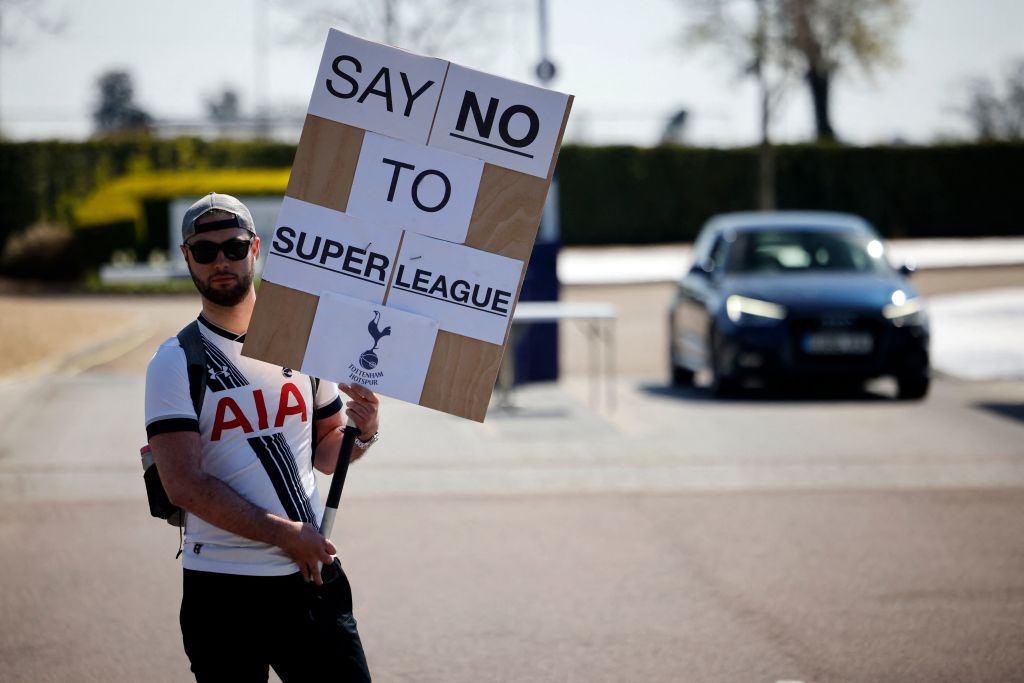Could Europe's most powerful soccer clubs effectively kill the World Cup?


A free daily email with the biggest news stories of the day – and the best features from TheWeek.com
You are now subscribed
Your newsletter sign-up was successful
Things are complicated in the world of European soccer at the moment.
The continent's most powerful clubs — Manchester United, Real Madrid, Inter Milan, and several others from England, Italy, and Spain — are attempting to form their own "Super League," much to the chagrin of their domestic leagues and UEFA, the sport's European governing body.
Basically, it comes down to money; the venture would be lucrative for the clubs, and not so lucrative for the UEFA, leaving the two sides in an apparent standoff. The whole thing may wind up being a bluff by the clubs to get more money from UEFA's Champions League, an annual continent-wide competition featuring the best teams from several domestic leagues, but right now it's unclear just how serious either side is.
The Week
Escape your echo chamber. Get the facts behind the news, plus analysis from multiple perspectives.

Sign up for The Week's Free Newsletters
From our morning news briefing to a weekly Good News Newsletter, get the best of The Week delivered directly to your inbox.
From our morning news briefing to a weekly Good News Newsletter, get the best of The Week delivered directly to your inbox.
If no one blinks, the world's most famous competition, the FIFA World Cup, may wind up in the middle of the dispute. On Monday, UEFA's president Aleksander Čeferin confirmed that any players who participate in the Super League "will be banned" from playing in the World Cup or the European Football Championship. "They will not be allowed to play for their national teams," he said, adding that sanctions against the clubs and players would come "as soon as possible," per Italian soccer journalist Fabrizio Romano. FIFA has also previously said the players would be ineligible for international competitions, suggesting players from non-European countries would be affected.
The World Cup would go on as planned, but if the threat is ultimately realized, many of the world's greatest players would be absent, which, it's safe to say, is not a desirable outcome and could potentially greatly diminish the event. That scenario would have consequences for the U.S. men's national team, as well, considering several of its young stars, most notably 22-year-old Cristian Pulisic (who plays for Chelsea, a would-be Super League participant), would be subject to the ban. Read a full explainer of the situation at CBS Sports.
A free daily email with the biggest news stories of the day – and the best features from TheWeek.com
Tim is a staff writer at The Week and has contributed to Bedford and Bowery and The New York Transatlantic. He is a graduate of Occidental College and NYU's journalism school. Tim enjoys writing about baseball, Europe, and extinct megafauna. He lives in New York City.
-
 Can Europe regain its digital sovereignty?
Can Europe regain its digital sovereignty?Today’s Big Question EU is trying to reduce reliance on US Big Tech and cloud computing in face of hostile Donald Trump, but lack of comparable alternatives remains a worry
-
 The Mandelson files: Labour Svengali’s parting gift to Starmer
The Mandelson files: Labour Svengali’s parting gift to StarmerThe Explainer Texts and emails about Mandelson’s appointment as US ambassador could fuel biggest political scandal ‘for a generation’
-
 Magazine printables - February 13, 2026
Magazine printables - February 13, 2026Puzzle and Quizzes Magazine printables - February 13, 2026
-
 TikTok secures deal to remain in US
TikTok secures deal to remain in USSpeed Read ByteDance will form a US version of the popular video-sharing platform
-
 Unemployment rate ticks up amid fall job losses
Unemployment rate ticks up amid fall job lossesSpeed Read Data released by the Commerce Department indicates ‘one of the weakest American labor markets in years’
-
 US mints final penny after 232-year run
US mints final penny after 232-year runSpeed Read Production of the one-cent coin has ended
-
 Warner Bros. explores sale amid Paramount bids
Warner Bros. explores sale amid Paramount bidsSpeed Read The media giant, home to HBO and DC Studios, has received interest from multiple buying parties
-
 Gold tops $4K per ounce, signaling financial unease
Gold tops $4K per ounce, signaling financial uneaseSpeed Read Investors are worried about President Donald Trump’s trade war
-
 Electronic Arts to go private in record $55B deal
Electronic Arts to go private in record $55B dealspeed read The video game giant is behind ‘The Sims’ and ‘Madden NFL’
-
 New York court tosses Trump's $500M fraud fine
New York court tosses Trump's $500M fraud fineSpeed Read A divided appeals court threw out a hefty penalty against President Trump for fraudulently inflating his wealth
-
 Trump said to seek government stake in Intel
Trump said to seek government stake in IntelSpeed Read The president and Intel CEO Lip-Bu Tan reportedly discussed the proposal at a recent meeting
